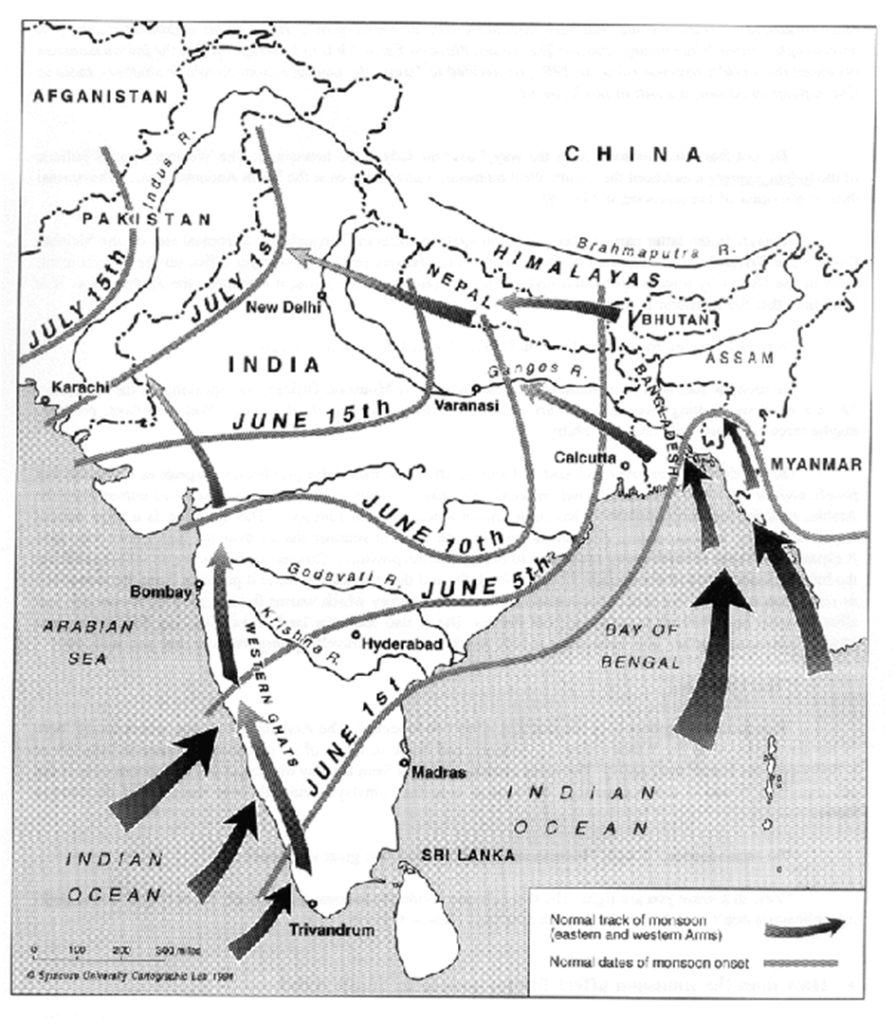QUES . Critically examine the factors responsible for unpredictability of the South-West Monsoon system in India.
HINTS:

The South-West Monsoon (SWM) is a crucial weather system that determines the agricultural output and water availability in India. However, its performance is often unpredictable, causing droughts or floods in different regions of the country. Several factors contribute to this unpredictability:
El Niño-Southern Oscillation (ENSO) events:
ENSO is a complex climatic phenomenon that affects weather patterns across the globe. During El Niño events, the sea surface temperatures in the equatorial Pacific Ocean rise, leading to reduced rainfall in India. Conversely, during La Niña events, sea surface temperatures in the same region decrease, leading to above-average rainfall in India. The timing and intensity of these events can affect the SWM’s performance, making it unpredictable.
Indian Ocean Dipole (IOD) events:
IOD is another climate phenomenon that affects the SWM. During a positive IOD event, the western Indian Ocean becomes warmer than the eastern Indian Ocean, leading to above-average rainfall in India. Conversely, during a negative IOD event, the opposite occurs, leading to below-average rainfall. The timing and intensity of these events can also affect the SWM’s performance.
Arctic Oscillation (AO) and North Atlantic Oscillation (NAO) events:
AO and NAO are climate phenomena that affect the weather in the Northern Hemisphere, including Europe and North America. However, they can also indirectly affect the SWM’s performance by altering the wind patterns and moisture content over India. The timing and intensity of these events can make the SWM’s performance unpredictable.
Land surface conditions:
The land surface conditions in India, such as soil moisture, vegetation cover, and land use change, can also affect the SWM’s performance. For example, deforestation and urbanization can alter the local weather patterns, making it difficult to predict the SWM’s behavior in these regions.
Global warming:
Climate change has altered the global weather patterns, making the SWM more unpredictable. The warming of the Indian Ocean and the Arabian Sea has increased the intensity of rainfall in some regions while reducing it in others, leading to unpredictable weather patterns.
Thus, the unpredictability of the SWM in India is influenced by a range of factors, including ENSO, IOD, AO, and NAO events, land surface conditions, and global warming. Understanding and predicting the behavior of the SWM is essential for the agricultural sector and water management in India, and efforts must be made to improve forecasting capabilities and adaptive measures.
